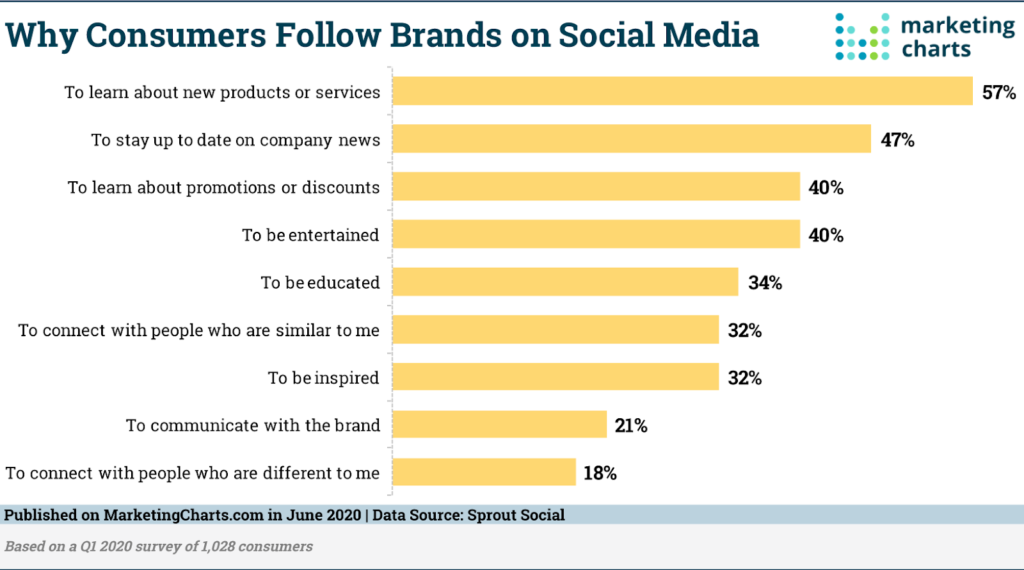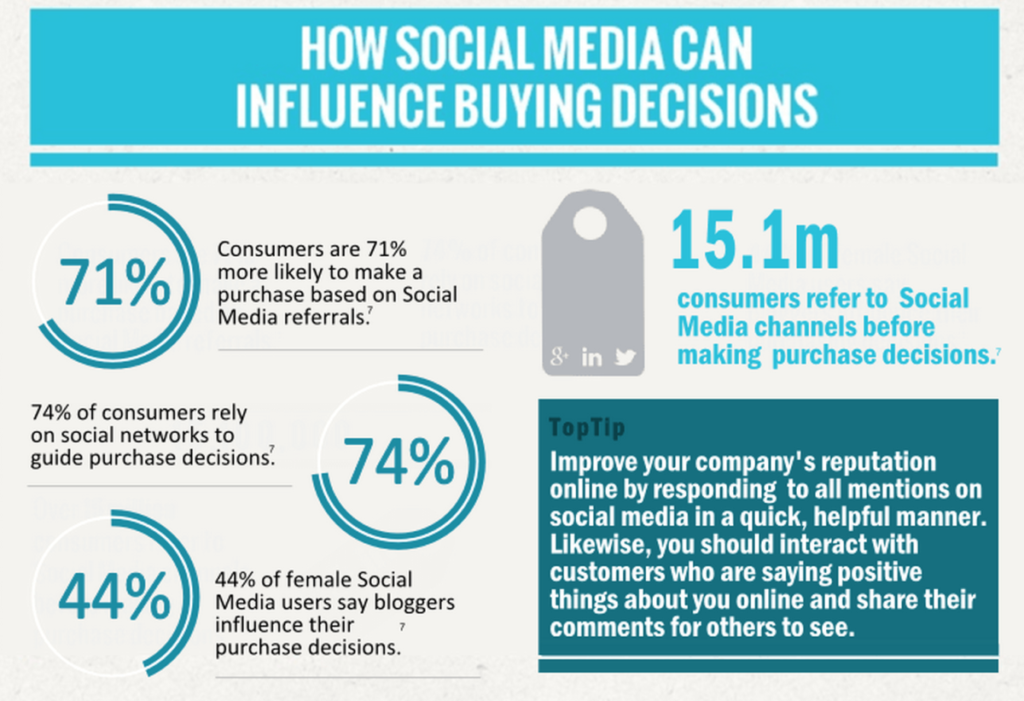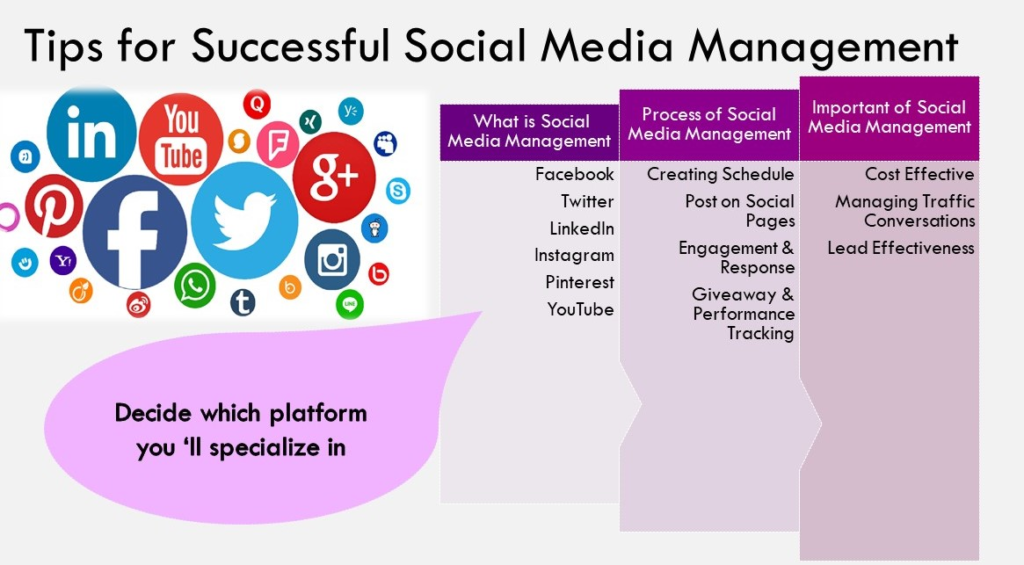7 Social Media Management Tools Freelancers Should Use

Table of Contents
- Why You Can’t Ignore the Power of Social Media Today
- Making a Case for Social Media: An Example
- The Impact Social Media Will Have in 2022
- What Is a Social Media Management Platform?
- How to Use a Social Media Management Platform
- Key Features of a Social Media Management Platform
- 5 Steps to Manage Social Media Well
- Key Takeaways
- Conclusion
- FAQs
In today’s digital era, where the fate of businesses and individuals gets decided with one click on social media, it is almost a crime to undermine the power of social media management tools. Social media not only helps freelancers and influencers network and reach their audiences, but it also acts as a powerful tool for ease of doing business. If you can leverage the power of social media, you can let go of the dependence on random phone calls to find work or reach out to the right people.
The best social media management tools will not only help you build your career as a freelancer but will also help streamline much of your promotional and networking-related efforts. In fact, without the knowledge of these tools, it is hard to have the desired outcomes for your business. Social media management tools play a dual role in your life: one is to keep you socially active and relevant, and the other is to leverage the power of social media to amplify your work and build connections.

Why You Can’t Ignore the Power of Social Media Today
Before you look at the list of social media management tools, let’s understand why you need to be taking them seriously. Social media has some characteristics that render it extremely crucial in today’s world. It is unique in more ways than one, and it is powerful beyond imagination. Social media, as the name suggests, is a means to increase your social reach online. Here are a few reasons why social media is so powerful today.
- Anyone can access social media: be it an influencer, a small business, or a five-year-old.
- Social media is the most popular meeting tool for people in today’s world. You meet potential employers, investors, friends, partners, celebrities, and hundreds of other people on social media. Can you imagine doing all this without social platforms like Facebook or LinkedIn?
- An entire generation of influencers and workers are only on social media. The youth, especially, is highly active on social media. And they form the pool of next-generation creators, entrepreneurs, industry leaders, celebrities, influencers, and so on.
- As a freelancer, social media is the best way to get noticed and hired by new clients. It is possibly the only way for the freelance economy to stay alive in this virtual era.
- As a social media user, you can easily and directly connect with business prospects and clients, without having to depend on external parties or any third-party intervention.

- There are numerous free social media management tools that significantly reduce your marketing and advertising costs, helping you allocate resources to more important line items like hiring talent.
- Social media has a wider reach in terms of geography and demography, as compared to traditional media channels like print magazines/newspapers or even television.
- The best social media management tools factor in the SEO score of your content and pull your business up on Google rankings. This helps you get noticed by the right people, at the right time.
- Your communication goes up multiple notches when you use social media management tools, as against normal marketing tools like emails and pamphlets.
- There’s a high chance your future client is more engaged or active on social media platforms. Because, after all, the entire world is on social media.
- Also, social media-savviness is slowly becoming a highly desirable quality in both freelance and full-time job markets. So if you’re not using social media actively, you’re most likely missing out on a lot.
Making a Case for Social Media: An Example
Imagine you are a business owner, whose product is freshly roasted coffee beans. You want to scale your business and are looking for investors. Now, you sit down with your marketing team and ask them to prepare a marketing strategy for the same. Your team members come up with two options.
- A flyer that describes your product, along with the benefits of freshly roasted coffee
- A 30-second YouTube video that features a group of friends enjoying your freshly roasted coffee with the backdrop of the Himalayas.
Now, which one do you think will have a bigger impact on the viewer? No prizes for guessing that it will be the YouTube video. Gone are the days when people had the time to go through a flyer to find out details about a product, then contact you over a call or email for inquiries, and finally decide whether to purchase it. Time is of essence, and people simply don’t have the time or interest anymore. With so many options available for the same product type, consumers or even investors would go for ones that are visually appealing and don’t take a lot of effort to sell. And for that, you need social media and social media management tools.
The Impact Social Media Will Have in 2022
Viral content and innovative ideas are all that are required to keep consumers glued to social media and for businesses to generate revenue. How frequently do you pause to read that latest blog on celebrity fashion trends or athleisure? Quite often, as we would imagine. And by the time you have finished reading, you are already surfing e-commerce sites to purchase that item. That is, of course, if it is already not conveniently inserted in the blog itself, which is typically the case. And voilà! Revenue gets generated for a business and a new product gets added to the consumer’s wardrobe. This is a huge testament to the power of social media today.

Social media is leveraged by one and all: from global giants like Tata and Microsoft and the local restaurant in your neighborhood to the freelance content creator just starting out on their journey. More and more social media managers are being trained to use social media management platforms to leverage this power and make money for their businesses. The goal is to improve the promised return on investment (ROI): that way, your investors are happy, you have a bunch of happy customers, and of course, your bank account is swelling with profits.
What Is a Social Media Management Platform?
Social media management can be defined as the process of planning and managing a brand’s activities on social media. The various social media platforms like Twitter, Instagram, or Facebook require an overarching management platform in order to leverage the right kind of audience and outreach.
Social media management tools can help your business increase productivity, improve efficiency, and keep your audience engaged. The right social media management platform can also help develop a sound business strategy and streamline marketing processes by helping you schedule posts, analyze social media trends, and engage effectively with users.
How to Use a Social Media Management Platform
You must first understand why you need social media management tools in the first place. Thanks to digital marketing, brands can now interact directly with their consumers. Consumers, on the other hand, expect quick responses and a professional approach to communication. And the latter is why you require a social media management platform.

So, if you are just beginning to explore the world of social media, you can try out some free social media management tools just to understand how they work and what benefits you can gain out of them. Try managing your own campaigns and design comprehensive interfaces that can easily be handled by even a novice social media manager.
A social media management platform can also help you optimize and improve the quality of your content. The latter is extremely important to keep your customers engaged and investors interested. Some of the best social media management tools can help you do just that. On these tools, you can choose features like targeted posting or a sponsored campaign. Knowing how to use a social media management tool despite having a social media manager is always an added advantage.
Key Features of a Social Media Management Platform
Social media management tools can be free or paid services. But with either, you can tap into an array of services that serve your businesses well. A few key features of social media management platforms are listed below.
Manage multiple social media accounts
Mostly, all businesses are active on multiple social media platforms, such as Twitter, LinkedIn, Facebook, and Instagram. Just tracking content posting and results for each post can be quite a tedious task and often overwhelming for social media managers. The solution is simple: use a social media management platform that allows you to manage multiple social media accounts seamlessly and in one place.
Schedule your content publishing activities

It is not necessary to wait for the right time to schedule a post manually. Leave that job to a social media management platform. You no longer need to sit long hours at their computers just to put up that one post at an odd hour at night. For that, you can rely on social media management tools.
Respond to comments quickly
There was a time when you would have to assign a dedicated person to read the comments on a particular post and respond in time. It used to be a cumbersome task back then. And humanly, it was not possible to respond to each comment within a stipulated time period. Fortunately, this task can also be automated. Some of the best social media management tools come with a listening feature that helps you respond to comments immediately, without having to depend on a human representative to do so.
Analyze trends and engagement
Yet another important feature of a social media management platform is its monitoring and analyzing capabilities. You need to be able to tell how your social media content is performing, both qualitatively and quantitatively. This, in turn, will impact your social media strategy for the next cycle, and help you make improvements.
Collaborate on content
Since most social media management software is cloud-based, you can allow multiple employees to come together to create and promote content. This prevents excessive pressure on one single creator or social media manager, and promotes a healthy and collaborative work environment.
5 Steps to Manage Social Media Well
As has already been established, the power of social media is probably still revealing itself. With that premise, there is an increasing need for businesses and individuals to learn how to manage social media in a better way. Here is how you can do it.
1. Focus more on quality and less on quantity
The entire world is on social media, posting content every microsecond of the day. This means, if your content is not unique and innovative, it will not stand out and fail to create the desired effect on the targeted audience. So, focus on posting content—whether original or shared—that is worthy of reshares. If the content is not original, always remember to credit the author or brand.
2. Plan your budget effectively
Have a sound understanding of the ROI before investing in expensive social media management platforms. It is recommended that you initially try out a few free tools for social media management and analyze your ROI, before setting aside a budget for social media management.

3. Create your posting schedule based on data
There is an ongoing debate around the best time to post your content on social media. Some would tell you that weekends are the best time to do so because people are free from their work and have all the time in the world to just be hooked to their screens. While this might be true for some brands and geographies, it is not a universal rule.
In fact, there is no golden hour to post something on social media. And your posting schedule should depend on data and analytics drawn from previous posts and consumption patterns of your target audience.
4. Do not over- or under-post
While no one can really tell you what the right quantity or frequency of posts is, you must be careful not to post too much or too little. This means you must not reshare everything on your feed, just to grab eyeballs. The content has to be relevant and well-timed in order to achieve real outcomes.
5. Do not ignore the basics
With the advancements seen in automating social media content management, there is a tendency to overlook the basic rules of social media posting. Don’t forget to use your hashtags properly or tag the right people in your post.
7 Best Social Media Management Tools You Can Use
It is true that social media is one of the most useful and powerful channels to boost your business and career. But it can often be overwhelming and time-consuming. Thankfully, with these seven social media management tools, you can significantly reduce and streamline your social media engagement efforts.
1. Buffer
This social media management tool has been around for quite some time and for many good reasons. It is quite popular with individuals and businesses alike. With Buffer, you can carry out the following functions.
- Publish regularly on various platforms.
- Analyze numbers and figures of each post.
- Schedule your posting well in advance.
- Use multiple scheduling platforms like Facebook, Twitter, LinkedIn, and Pinterest.
2. Meet Edgar
This is a social media scheduling platform that organizes and stores your posts into different categories. All you need to do is set the first schedule, and thereafter, the software will auto-schedule your posts. With MeetEdgar, you can do the following things.
- Automate your content scheduling.
- Get suggestions on relevant posts.
- Sync your blog with your YouTube channel.
3. Hootsuite
This is one of the oldest and most popular social media scheduling tools. Hootsuite lets you streamline all your customer channels, including WhatsApp and live chat. It also helps you analyze social media trends, gains performance insights, and engage effectively across all channels. With Hootsuite, you can do the following.
- Publish on platforms like Twitter, Instagram, WordPress, Instagram, and Facebook.
- Get advanced analytics on your scheduling.
- Get digital brand protection.
4. Sendible
This is yet another scheduling software that allows you to visually map out your content. It helps you monitor brand mentions, get performance insights, collaborate on social media posts, and devise a cohesive publishing strategy. With Sendible, you can do the following tasks:
- Create a monthly publishing plan.
- Envisage how your posts would look before they go live.
- Generate reports and analytics.
5. HelloWoofy
This is a comparatively new social media management platform that packs quite a punch. Aimed at small businesses, HelloWoofy helps you create effective campaigns and schedule your social media posts with utmost ease. With this social media management tool, you can carry out the following functions.
- Integrate easily with other platforms, such as Twitter, Facebook, LinkedIn, WordPress and more.
- Publish audio or video posts using smart technology.
6. Social Champ
This is one of the most popular and all-in-one social media management tools. It enables businesses and agencies to manage multiple social media profiles using a single dashboard seamlessly. With its robust features, you can plan and schedule your posts in advance, analyze performance, and effectively engage with your audience.
With Social Champ, you can perform the following tasks:
- Keep track of your social media performance with Analytics.
- Engage with the audience with a unified Social Inbox.
- Outperform your competitors with the Social Listening tool
7. Tailwind
This is the best social media management platform if your work heavily relies on Pinterest and Instagram. It is focused on enhancing and beautifying your social media content.
- Create professional images and designs.
- Get more than 100 options to style your images.
- Create a single calendar across all social profiles.
- Automatically generate hashtags for your posts.
- Get suggestions for relevant networking communities.
Key Takeaways
- Social media management tools are undoubtedly a must-have if you want to win big as a social media manager or freelancer.
- The entire world, including your investors and customers, is on social media.
- Social media marketing is the most cost-effective and widespread form of marketing in today’s world.
- There are innumerable free social media management tools that offer a suite of services to streamline your social media engagement efforts and maximize your returns.
- You need to make use of a social media management platform in order to analyze and improve your marketing and networking strategies.
Conclusion
At the end of the day, you have a choice. Do you want to stick to traditional digital marketing tools that cost you a lot of money and are extremely resource-intensive, both in terms of time and effort? Or do you want to try out the amazing world of social media management tools that help streamline your marketing efforts and improve business outcomes? The answer is pretty clear to most social media managers today. The question is whether you are ready to adapt and stay relevant.
FAQs
The process of streamlining your social media engagement by producing, scheduling, and publishing content on social media is known as social media management.
Some of the best social media management tools for enterprise-level companies include Sprinklr Reach, Oktopost, Buffer, Hootsuite, Sendible, etc.
There are a few free social media management tools that beginners can try out. Some of them include Buffer, Crowdfire, Tailwind, and Zapier, among many others.
If you are looking for long-term social media management tools, platforms like Hootsuite, Buffer, Crowdfire, and Sendible are great options.
A good social media manager app is one that lets you produce, schedule, and post content on social media seamlessly. It should also enable you to track your posts’ performance.
Social media is a crucial marketing and networking tool that helps businesses reach the right audiences at the right time.
Latest Blogs
Explore how Google’s 2025 AI search updates triggered ranking chaos. Learn actionable strategies to adapt your SEO for AI Overviews, zero-click searches, and SERP volatility. Stay ahead now.
Learn how to rank on AI search engines like ChatGPT, Perplexity, and Gemini by optimizing your content for authority, structure, and relevance. Stay ahead in AI-driven search with this strategic guide.
Explore the best healthcare SEO services for your medical practice. Improve online visibility and effectively reach more patients in need of your services.
Get your hands on the latest news!
Similar Posts

Artificial Intelligence
5 mins read
Enhance Your Writing Efficiency: Must-Have Content Writing Tools for Marketers

Marketing
5 mins read
9 Key Strategies To Increase Twitter Reach

Marketing
6 mins read